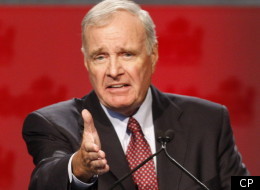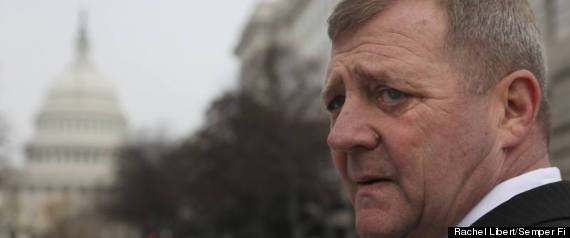There is something utterly engrossing about witnessing the spectacle of blithe ignorance in the face of impending doom.
So it is utterly engrossing, not to mention frightening, to read the January 2006 transcript of the Federal Reserve's eerily calm meeting at the dawn of the housing market's slow-motion meltdown. Consider some of the inauspicious details. Days after a sharp GDP decline, the Fed broadly considered the warning sign a statistical aberration. They characterized the housing crisis as a limited risk. Members praised Greenspan's tenure not only as unblemished, but also as a launching pad for years of steady growth. It's a grim scene, and it reminded me of another spookily casual transcript -- from the cockpit of doomed Air France flight 447.
On June 1, 2009, a plane carrying 228 people plunged into the Atlantic Ocean, in what became one of the greatest mysteries in modern aviation. How did a "technologically state-of-the art airliner" vanish into the water? As Popular Mechanics explained, it began with a storm and ended with simple human error.
Air France 447 had flown head first into a large system of thunderstorms. The captain left the cockpit to take a brief nap (he would return before the end), leaving the plane in the hands of thoroughly trained pilots. The time was 2:02 AM. Fifteen minutes later, everyone on board would be dead in the ocean.
Very soon, ice accumulation began to interfere with the speed sensors. An inauspicious aroma seeped into the cockpit. The pilots reacted with a bizarre combination of hasty actions and lazy thinking. When the plane had stalled, the pilots ignored the loud stall alarms. Their reaction -- to pull back on the stick -- was the exact opposite of what they were supposed to do in the situation. They assumed the plane's computer would prevent them from making a catastrophic mistake. But they failed to see that the computer had switched into an alternative mode that made it easier for them to stall the aircraft 30,000 feet above the ocean.
As the pilots pushed the plane's nose higher and higher in the sky, the plane did stall -- and fall. But none of pilots ever used the word "stall" in the transcript, including the captain, who returned in time to stop the crash, but failed. Nobody even diagnosed the problem until precisely 2:13 AM and 42 seconds in the black box log. It was too late. Forty-eight seconds later, AF447 and all 228 passengers hit the ocean.
And so, a highly advanced cockpit stocked with highly trained professions failed to avoid an utterly avoidable tragedy because of a mix of confusing conditions, overconfidence, and human error. I hope that, by laying out their circumstances so broadly, you'll understand where I see the parallels with the 2006 Fed meeting.
So it is utterly engrossing, not to mention frightening, to read the January 2006 transcript of the Federal Reserve's eerily calm meeting at the dawn of the housing market's slow-motion meltdown. Consider some of the inauspicious details. Days after a sharp GDP decline, the Fed broadly considered the warning sign a statistical aberration. They characterized the housing crisis as a limited risk. Members praised Greenspan's tenure not only as unblemished, but also as a launching pad for years of steady growth. It's a grim scene, and it reminded me of another spookily casual transcript -- from the cockpit of doomed Air France flight 447.
***
On June 1, 2009, a plane carrying 228 people plunged into the Atlantic Ocean, in what became one of the greatest mysteries in modern aviation. How did a "technologically state-of-the art airliner" vanish into the water? As Popular Mechanics explained, it began with a storm and ended with simple human error.
Air France 447 had flown head first into a large system of thunderstorms. The captain left the cockpit to take a brief nap (he would return before the end), leaving the plane in the hands of thoroughly trained pilots. The time was 2:02 AM. Fifteen minutes later, everyone on board would be dead in the ocean.
Very soon, ice accumulation began to interfere with the speed sensors. An inauspicious aroma seeped into the cockpit. The pilots reacted with a bizarre combination of hasty actions and lazy thinking. When the plane had stalled, the pilots ignored the loud stall alarms. Their reaction -- to pull back on the stick -- was the exact opposite of what they were supposed to do in the situation. They assumed the plane's computer would prevent them from making a catastrophic mistake. But they failed to see that the computer had switched into an alternative mode that made it easier for them to stall the aircraft 30,000 feet above the ocean.
As the pilots pushed the plane's nose higher and higher in the sky, the plane did stall -- and fall. But none of pilots ever used the word "stall" in the transcript, including the captain, who returned in time to stop the crash, but failed. Nobody even diagnosed the problem until precisely 2:13 AM and 42 seconds in the black box log. It was too late. Forty-eight seconds later, AF447 and all 228 passengers hit the ocean.
And so, a highly advanced cockpit stocked with highly trained professions failed to avoid an utterly avoidable tragedy because of a mix of confusing conditions, overconfidence, and human error. I hope that, by laying out their circumstances so broadly, you'll understand where I see the parallels with the 2006 Fed meeting.































